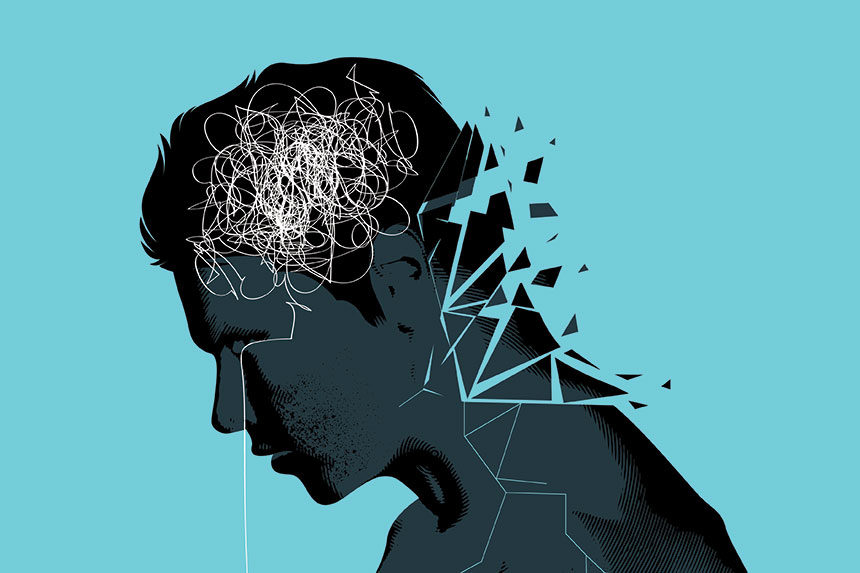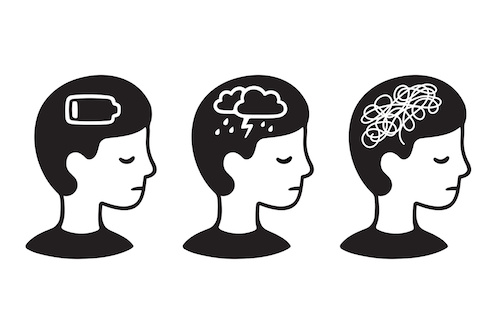
Mental illness, often known as mental health problems, refers to a variety of conditions that impair one’s mental health. Individuals’ moods, thinking, and conduct are all affected by mental disorders. Anxiety, sadness, eating disorders (anorexia and bulimia), and schizophrenia are all frequent mental diseases. Many mental illnesses can make it difficult to operate normally, work, study, or socialize.
Medications and psychotherapy can also usually control the symptoms of mental disorders conservatively. Mental illness is frequent, affecting one out of every five persons. Mental illness can strike anyone at any age, whether they are a child or an adult.
What are the five main warning signals of mental illness?

“Self-care is how you take your power back.” — Lalah Delia
- Excessive paranoia, worry, or anxiety
- Long-lasting sadness or irritability
- Extreme changes in moods
- Social withdrawal
- Dramatic changes in eating or sleeping pattern
How do you know if someone has a mental illness?

“This feeling will pass. The fear is real but the danger is not.” ― Cammie McGovern
Depending on the mental disorder and severity of the sickness, the signs and symptoms of mental illness might vary. The following are some of the indications and symptoms associated with mental illnesses:
- Feeling sad and unhappy
- Inability to concentrate
- Excessive fears
- Unnecessary feelings of guilt
- Severe mood changes
- Easy irritability
- The tendency to react with violence
- Withdrawal from friends and activities
- Inability to maintain relationships
- Inability to work or study
- Disorganized speech (talking meaningless sentences that likewise don’t make sense)
- Feeling tired and lethargic
- Insomnia (difficulty sleeping) or sleeping too long
- Detachment from reality
- Delusions (false and sometimes unrealistic beliefs in which the person refuses to stop believing, despite providing proof, for example, believing they are God, that aliens are reading their minds, etc.)
- Paranoia
- Hallucinations (having unreal sensations such as hearing voices, seeing things, feeling sensations on the skin, having strange odors that aren’t real, etc.)
- Inability to cope with daily problems or stress
- Consuming excessive alcohol
- Drug abuse
- Loss of appetite or excessive eating
- Decreased sex drive
- Suicidal thinking (also requires immediate medical attention)
Causes of the mental illnesses

“There is hope, even when your brain tells you there isn’t.” ― John Green
It is not always possible to pinpoint the exact source of mental illnesses. Various hereditary and environmental variables, or a mix of both, could be to blame:
Genetic: Mental illness is more common in people who have a blood family who suffers from it. Certain genes that raise the risk of mental disease can also be inherited. In those who have genetic predispositions to mental disease, environmental conditions and other psychological or physical stressors can likewise precipitate mental illness.
Environmental stressors before birth: Prenatal exposure to environmental stressors, inflammatory disorders, poisons, alcohol, or narcotics might raise the likelihood of a child developing mental illness later in life.
Changes in brain chemistry: Neurotransmitters are substances in the brain that transmit signals to other sections of the brain and also the rest of the body. When these substances’ roles are disrupted, the nervous systems’ normal function is disrupted, resulting in mental illnesses.
Risk factors for mental illness

“What mental health needs is more sunlight, more candor, and more unashamed conversation.” — Glenn Close
Certain constituents may likewise increase your risk of mental illness:
- Family history of mental illness
- Previous history of mental illness
- Intense psychological or physical stress due to stressful situations in life; such as financial problems, loss of a job, death of a loved one, or a divorce
- Traumatic experiences such as sexual assault, war, etc.
- Unpleasant childhood due to bullying, abuse, or neglect
- Chronic medical conditions, especially diseases that are associated with chronic pain and diseases affecting quality of life. Such as rheumatoid arthritis, cancer, fibromyalgia, etc.
- Trauma to the brain
- Alcoholism and/or drug abuse
Mental Illnesses are just like physical illnesses which require attention. Seek therapy, talk, and let everything out. Be gentle and also kind to the whole world.






